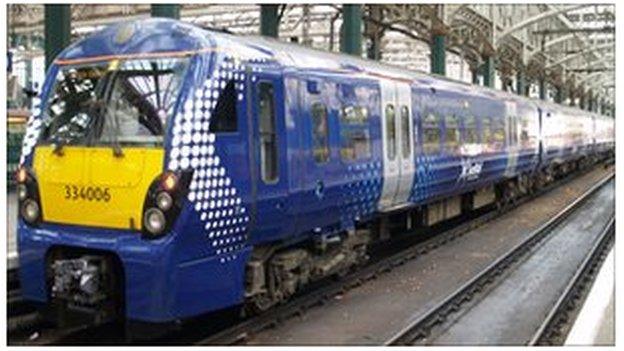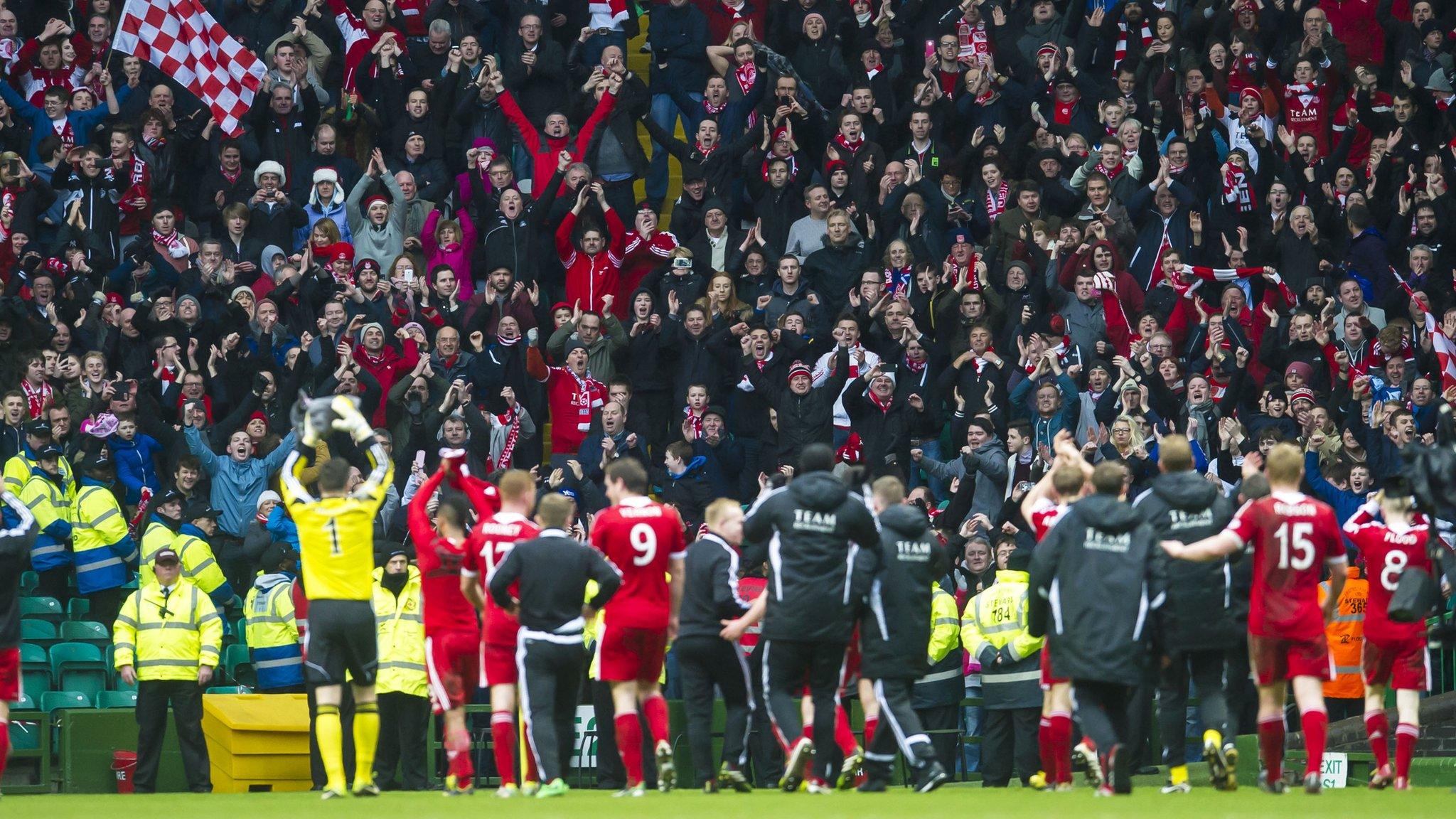Scotrail announces special trains for Scottish Cup final
- Published

Dundee United and St Johnstone will contest the Scottish Cup Final in May
Special trains are to be laid on for the Scottish Cup Final in May.
Fears had been raised over engineering works on the line between Perth and Glasgow ahead of Dundee United and St Johnstone's meeting at Celtic Park on 17 May.
However Scotrail has now confirmed up to six outbound services will travel from Tayside to Glasgow on the day.
The trains will provide transport for at least 2,000 fans of both clubs for the derby cup final.
Scotrail has confirmed that there will be no alcohol allowed on the services, with details about booking to be released in due course.
The trains, which will take around two hours to make the trip due to engineering works near Stirling, are provisionally timetabled to leave Perth between 09:30 and 11:00 and Dundee between 09:40 and 11:30.
ScotRail managing director Steve Montgomery said: "We are pleased to be able to provide at least 2,000 seats on special trains to help fans of both clubs cheer on their teams at the Cup Final.
"Due to planned engineering near Stirling, it's been a bigger challenge than normal to run these trains but we are confident they will be welcomed by spectators attending the big game in Glasgow."
Engineering works
Special trains were also laid on for last month's League Cup final between Aberdeen and Inverness Caledonian Thistle.
Fears were raised when it transpired Network Rail had arranged engineering works for the day of the Scottish Cup final 18 months ago.
The track is to be closed at Larbert over three weekends in May to help prepare for the electrification of central belt lines, meaning direct services were cancelled and others have to go via the Forth Bridge.
Transport Minister Keith Brown called on the industry to avoid similar engineering clashes with big events in future.
He said: "Both ScotRail and Network Rail have stepped up to ensure that fans from Perth and Dundee can travel to Glasgow in comfort for the cup final.
"Going forward I am asking the industry to review their preparations to reduce the risk of engineering works clashing with major events wherever possible."
- Published15 April 2014

- Published28 February 2014

- Published21 February 2014
